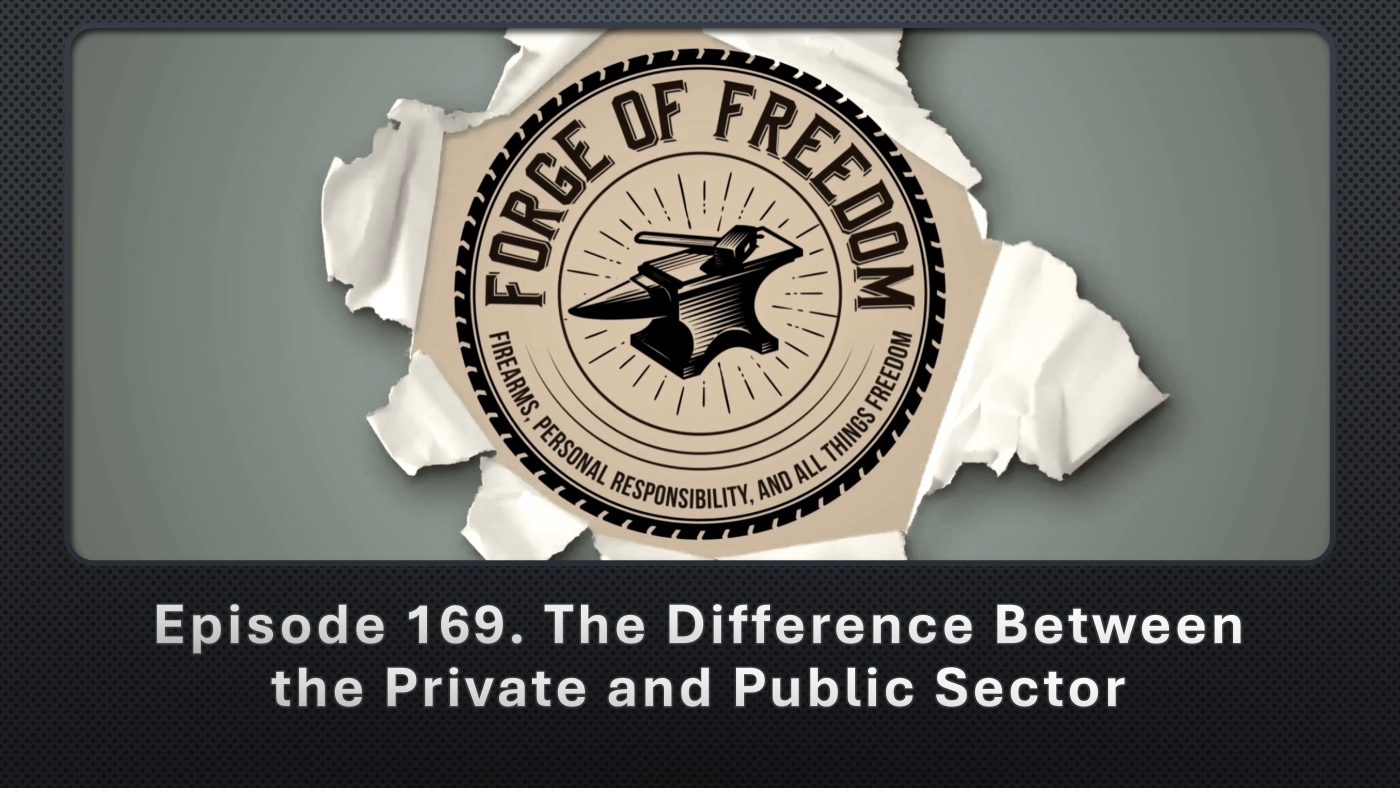Show Notes
Episode 169. The Difference Between the Private and Public Sector
In this episode of the Forge of Freedom podcast, host Alex Ooley discusses the fundamental principles of government, private property, and the free market. He emphasizes the detrimental effects of government on human prosperity and freedom, advocating for a reduction in government size and influence. Ooley contrasts the private and public sectors, highlighting the inefficiencies and coercive nature of government operations compared to the voluntary exchanges in the market. He also explores the implications of democracy on economic systems and the inherent flaws in socialist models. The episode concludes with reflections on the nature of the state and the importance of individual conscience in governance.
Chapters
00:00 Introduction to Government and Property Rights
02:55 The Role of Government in Economic Prosperity
06:00 Private vs Public Sector: Understanding the Differences
11:52 The Impact of Democracy on Economic Systems
18:13 The Nature of the State and Economic Means
24:08 Conclusion and Reflections on Freedom
Resources
The Difference Between the Private and Public Sector
https://fee.org/articles/the-difference-between-the-private-and-public-sector/
https://x.com/feeonline/status/1891508685559504989
I, Pencil
https://forgeoffreedom.com/episode-15-i-pencil/
Capitalism versus Socialism
Ludwig von Mises (Socialism)
https://mises.org/library/book/socialism-economic-and-sociological-analysis
https://cdn.mises.org/Socialism%20An%20Economic%20and%20Sociological%20Analysis_3.pdf
Takeaways
- The right to self-ownership and private property is essential.
- Government often hinders economic freedom and prosperity.
- Cuts to government can be beneficial if they reduce waste.
- The private sector operates on voluntary exchanges, unlike the public sector.
- Public goods are not truly free; they are funded by taxes.
- Democracy can lead to the majority living at the expense of the minority.
- The state is fundamentally a coercive entity.
- Socialism fails due to the absence of a pricing mechanism.
- Economic calculation is impossible in a socialist system.
- Individual conscience should guide governance, not blind obedience.
Keywords
government, private property, free market, economic prosperity, public sector, democracy, capitalism, voluntary exchange, socialism, economic calculation problem
DISCLAIMER: This podcast is for informational purposes only and should not be considered legal, medical, or financial advice. The views expressed in this podcast are those of the hosts and guests and do not necessarily reflect the views of any organizations or individuals they may mention. The hosts and guests are not liable for any damages that may result from someone listening to this podcast.

